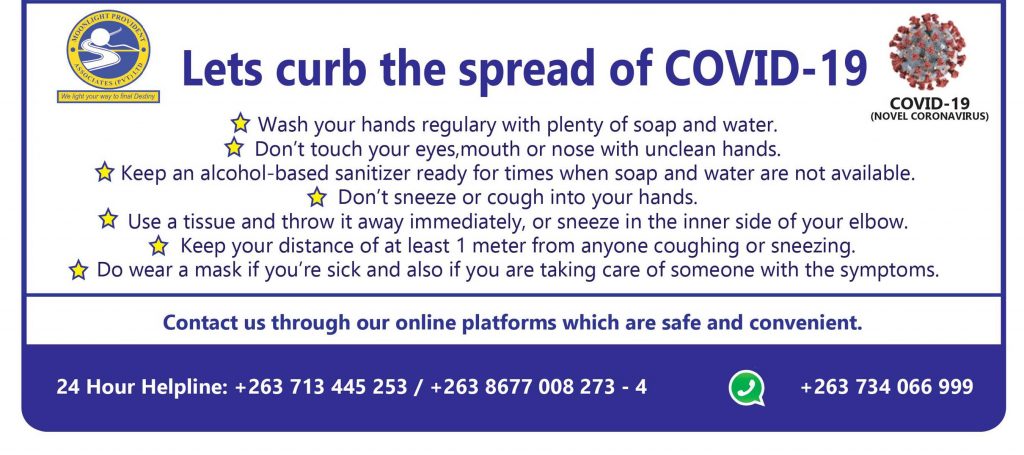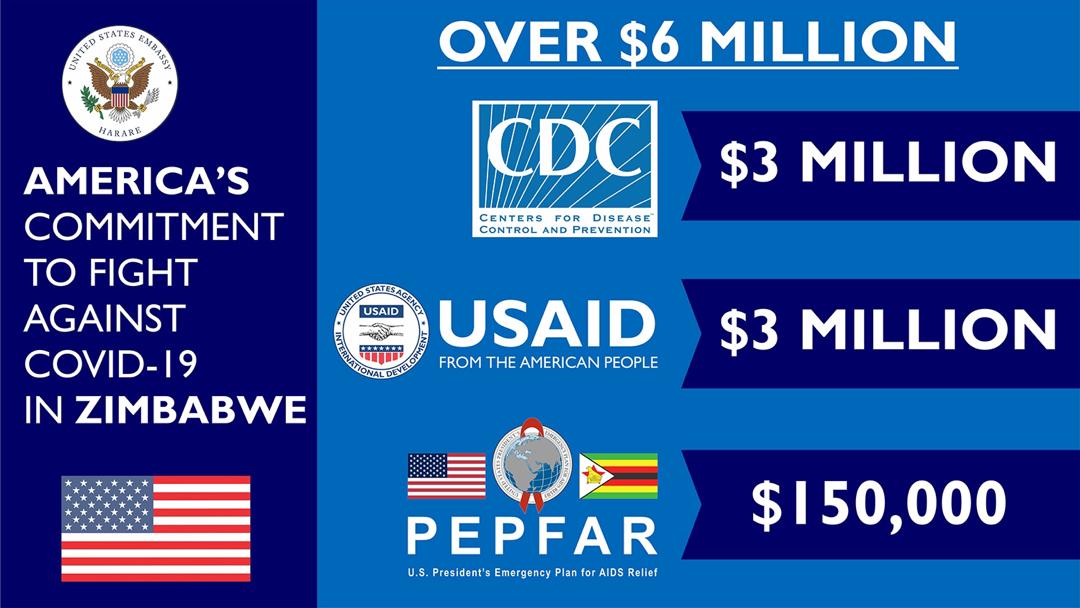Through the U.S. Centers for Disease Control and Prevention (CDC), the United States has committed US$3 million from the U.S. Coronavirus Aid, Relief, and Economic Security (CARES) Act to support Zimbabwe’s COVID-19 National Preparedness and Response Plan.

This new donation brings to over US$6 million the total amount that the United States has committed to the fight against COVID-19 in Zimbabwe while continuing to respond to the increasingly dire humanitarian situation in Zimbabwe.
CDC will award the new funding in early May 2020 through existing CDC Zimbabwe implementing partners: ICAP at Columbia University, the Biomedical Research & Training Institute (BRTI), and the International Training & Education Center for Health (ITECH).
Programs will increase laboratory diagnostic capacity; enhance central and district-level surveillance; strengthen infection, prevention, and control in healthcare facilities; and support vaccine preparedness.
CDC will also use approximately US$75,000, part of the US$150,000 previously announced President’s Emergency Plan for AIDS Relief (PEPFAR) funds, to support COVID-19 prevention measures for people living with HIV.
CDC also supports Zimbabwe through technical assistance. CDC Zimbabwe has several public health experts serving and supporting as co-chairs and technical experts in government entities established by Zimbabwe’s national plan, including surveillance and epidemiology, infection prevention and control, laboratory, case management, and risk communication and community engagement.
CDC technical assistance, together with other partner support, has assisted the Government of Zimbabwe to develop COVID-19 case definitions, protocols for surveillance, contact tracing, quarantine, infection prevention and control, treatment, and diagnostic testing.
CDC’s support aims to enhance COVID-19 response capabilities while building longer-term, sustainable capacity to respond to highly communicable diseases in the future. Through ICAP, CDC provides vehicles and supplies from Zimbabwe Population-based HIV Impact Assessment (ZIMPHIA) activities to fight COVID-19.
“The goal of the CDC and U.S. global health response to COVID-19 is to limit human-to-human transmission and minimize the global impact of COVID-19 through a partnership with countries, multilateral and non-governmental partners to mitigate vulnerabilities and gaps in preparedness.
This U.S. funding and technical support build on our long-standing partnership and investments to contribute to a healthier Zimbabwe,” said Dr. Kelsey Mirkovic, CDC Acting Country Director.
The United States has been a long-standing development partner for the people of Zimbabwe. We invested over US$370 million in health, humanitarian, and development assistance in 2019. We are working tirelessly to ensure that we maintain critical health and humanitarian assistance activities, especially during the COVID-19 pandemic.
The United States Government is monitoring the COVID-19 pandemic globally and remains committed to directing and allocating resources based on changing epidemiology and response requirements.






